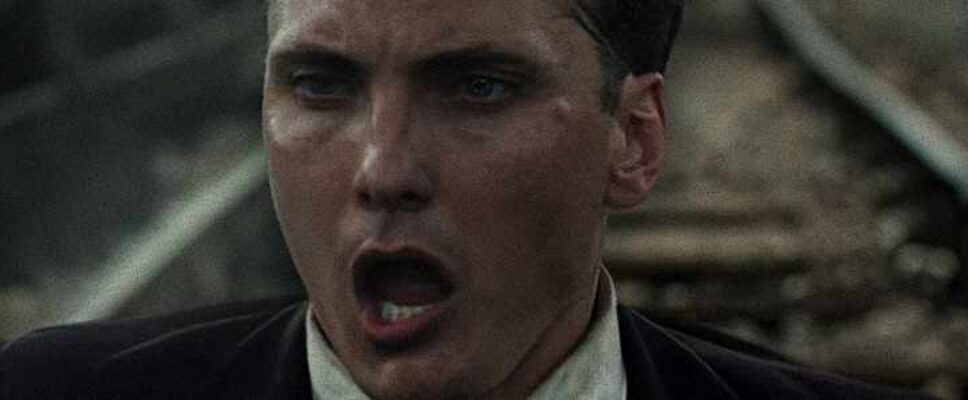Teresa Reviews “ABC Murders” (2018)
Teresa reviews “ABC Murders” (2018) and apart from the appearance of “Harry Potter” actors, finds it grim, dreary, and disgusting.
Fidelity to text: 2 ½ coshes
![]() The murder plot remains. Everyone, including Poirot, desperately needs therapy for depression and assorted personality disorders.
The murder plot remains. Everyone, including Poirot, desperately needs therapy for depression and assorted personality disorders.
Quality of movie on its own: 3 1/2 coshes
![]() But only if you’ve never read the book and have a taste for unrelenting grim and dark. Otherwise, 2 ½ coshes.
But only if you’ve never read the book and have a taste for unrelenting grim and dark. Otherwise, 2 ½ coshes.
Read more of Teresa’s Agatha Christie movie reviews at Peschel Press.
Also, follow Teresa’s discussion of these movie on her podcast.

Although the murder plot remains unchanged, everything else was altered and not necessarily for the better. Sarah Phelps, the writer, likes things worse. She does not — according to her films that I’ve seen — have a sunny view of human nature.
Let’s dispense with Hastings first. Our Captain, not normally the sharpest knife in the drawer, must have watched Phelp’s previous adaptations and read the handwriting on the screen. He’s in the novel, assisting Poirot every step of the way, even (inadvertently) providing Poirot a vital clue. If he participated in this version, he’d probably have been made over into an adulterer and a child molester. Instead, he remained safely in Argentina and avoided that fate. Hastings had another reason to come to this conclusion: in Tony Randall’s The Alphabet Murders (1965), he became a fat towel-clad buffoon who’d never previously met Poirot.

Think I’m kidding? Rose Marbury, indifferent but not ill-disposed landlady for A. B. Cust becomes a drunken harridan who pimps out her daughter (for a shilling a toss!) and screams she should have aborted Lily with a knitting needle.

Thora Grey’s gold-digger ways get placed front and center, to the point of making her stupid. No smart gold-digger would put the moves on a man sobbing over his much-loved wife’s imminent death. She’d bide her time, behave like a caring and conscientious daughter, and wait until months after the funeral when the right moment arrived. Then she’d move in for the ring, title, and riches.
Since Japp dies of a convenient heart attack and was probably grateful for this, Inspector Crome takes center stage. If he looks familiar, he’s Rupert Grint, all growed up with a mustache to make him look more adult and capable and less like Ron Weasley.
Along with all the other character changes, Poirot gets a radical rewrite. In the novel, he’s at the height of his success as the most famous private detective in England, lauded wherever he goes. He’s the natural choice for an aspiring serial killer to taunt, especially if the serial killer has an ulterior motive. All that’s gone, other than A.B.C.’s letters. This Poirot is a forgotten, despised man. He fooled Japp into believing he was a Belgian policeman. Scotland Yard checked into his background and discovered that there was no proof whatsoever that Poirot had been a policeman or a detective. Or anything, for that matter. He appeared on that refugee train in 1914 or so, right after the Rape of Belgium, and when asked by the clerk what he was, lied and said “policeman.”

This Poirot turns out to be a Catholic priest who lost his faith when the invading Germans burned his church to the ground with all his parishioners inside. He flees to England, lies about his background, and, and, and, becomes a private detective? Because he’s read lots of mysteries? No reason is ever given why he chose to become a detective and a celebrity one at that, who hosts fancy murder mystery parties for the wealthy aristocracy when he’s not solving crimes.
Alexander Bonapart Cust gets some changes, including switching from dominoes to backgammon. He becomes far more attractive and younger than he was in the novel. He suffers from fits and fugues and blacks out frequently. He also indulges himself with Lily, his landlady’s daughter but he pays for a slightly different service than mere ordinary sexual favors. No, he pays to be tied up and have Lily walk on his naked back, grinding her heels into his wounds.

Yet at the same time, if you like gritty and grim confirming your low opinion of humanity and you’ve never read anything Agatha wrote, this film may work for you. The story ties together, other than the aforementioned stupidity. It’s beautifully filmed although those mean streets and dingy alleys are suspiciously clean. The color palette uses lots of reds and yellows, highlighting key points like blood and telephone boxes, yellow egg yolks and huge boils waiting to burst.
It can get tedious at times but we watched all three hours, one after the other. It was filmed to be shown at one week intervals, meaning that the audience had to be reminded of what happened previously.
It’s also got John Malkovich as Poirot. He’s too tall (think Peter Ustinov and Alfred Molina), he’s rude (which Poirot never was), he’s got a mustache and goatee he’s forced to let go gray, he’s bald, and his accent is weird. If you’re unfamiliar with the novel, he’s a success as a con who’s been found out, a forgotten man living on old dreams and good investments. He’s a stranger in a strange land, unwanted until he’s needed.
This isn’t Agatha Christie’s novel. She’d have been horrified. It’s Sarah Phelp’s film so your reaction will depend on how you feel about that.


